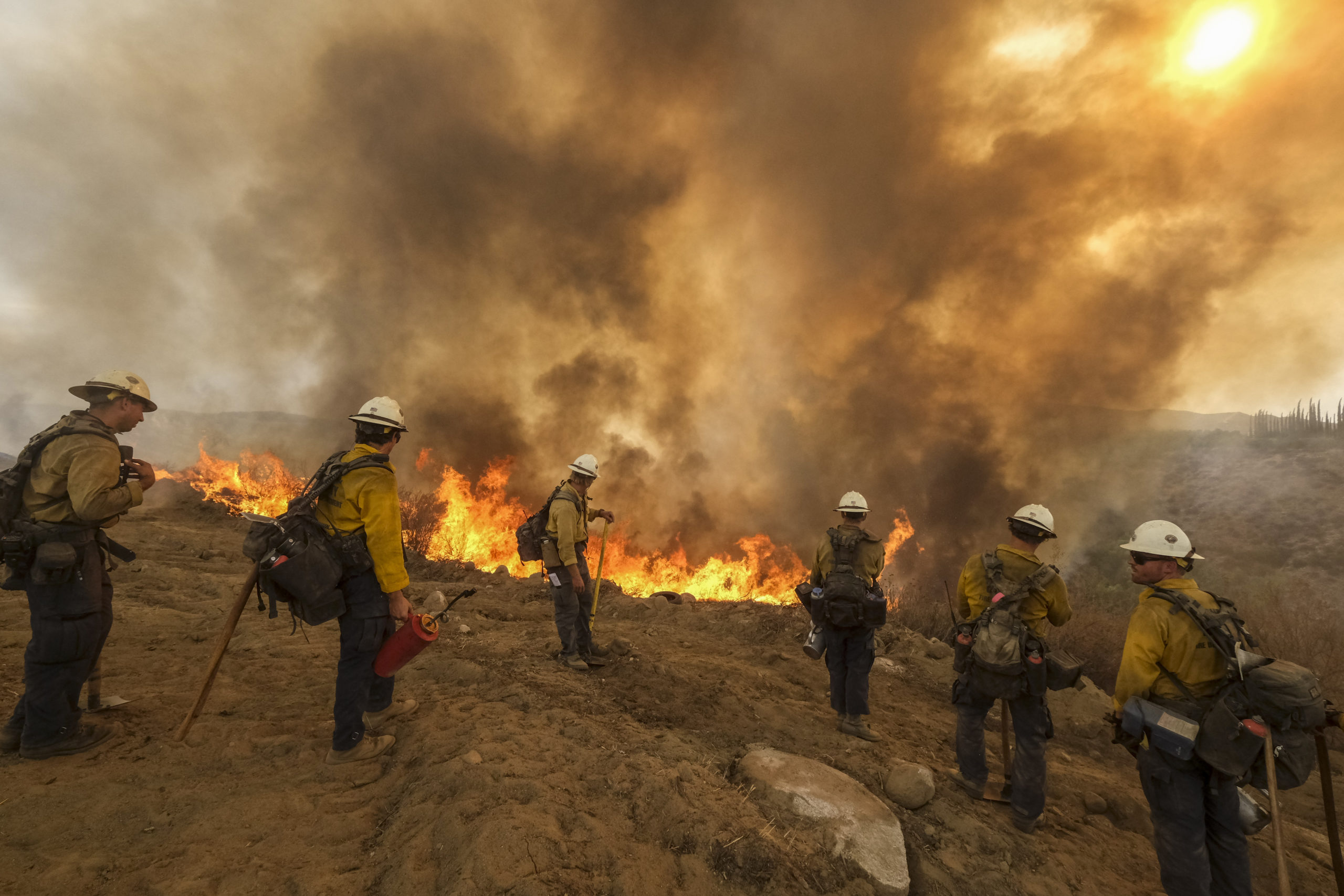
Firefighters watch as the Fairview Fire burns on a hillside, Sept. 8, 2022, near Hemet, California
Over the past year, Nieman Reports has sat down with a number of people who are propelling journalism forward. From editors leading new initiatives in their newsrooms to experts strategizing solutions to some of the industry’s most pressing problems, Nieman Reports’ seminars and interviews have tackled issues including climate change, online harassment, democracy coverage, and more. Here are five of Nieman Reports’ most thought-provoking conversations from the past year:
Related Posts
Chris Quinn, the editor of cleveland.com and the Plain Dealer in Ohio, made headlines in September for his column explaining why the paper would not cover a rally featuring Ohio U.S. Senate candidate J.D. Vance and Florida Gov. Rob DeSantis. The rally, which prohibited reporters from speaking with attendees without approval and reserved the organizers’ right to all footage, would “end up skewing the facts,” Quinn wrote in his column. Digital and audience engagement editor Adriana Lacy spoke to Quinn about how the Plain Dealer was approaching its midterm coverage and the role of newsrooms as advocates for democracy.
How to Support Journalists Experiencing Online Harassment
Dangers to journalists today do not only come in the form of physical threats out on the field — reporters are also dealing with doxing, trolling, and death threats online. Women and people of color are also more likely to face the brunt of online harassment. To help journalists combat online harassment, the International Women’s Media Foundation (IWMF), a nonprofit dedicated to helping female journalists overcome obstacles in their careers, released a guide for newsroom management looking to better support and protect their journalists. Ha Ta spoke to Elisa Lees Muñoz, the executive director of the IWMF, about the landscape of online abuse and how media organizations can use the IWMF’s guide.
“Journalism Is the Way to Act”: Why NPR Launched Its New Climate Desk
2022 saw another year of record temperatures, wildfires, drought, and extreme weather, a testament to the fact that the climate crisis is in full swing. In response, NPR has declared the climate crisis an essential topic in its coverage and established a brand-new desk dedicated to reporting on climate in more depth than ever before. Marigo Farr talked with Andrea Kissack, the desk’s lead editor, and Neela Banjeree, the desk’s deputy editor, about how the desk came to be and their hopes and fears for the future of climate reporting.
Dr. Ashish Jha on Bracing for the Pandemic’s Third Year
As vaccines became more widely available in the summer of 2021, many hoped that the end of the pandemic was near. But when the Delta and Omicron variants grew rampant through the fall and winter, uncertainty loomed about where Covid-19 would head next. In January, White House Covid-19 response coordinator Dr. Ashish Jha spoke to the Nieman Foundation about what we should expect in the pandemic’s third year, how the press should continue covering the virus, and how to combat disinformation.
Companies Rely on Journalism To Not Cover Tech. Here’s How To
The world of tech — from block chain to spyware to cybersecurity — can seem nebulous and daunting for many. Tech, however, has major implications for the everyday person’s privacy, and journalists must step up to cover the beat more in-depth. Bruce Schneier, dubbed the “security guru” by the Economist, spoke with Nieman Fellows in April about how reporters can incorporate tech into their work, how newsrooms can better protect their staff from cyberattacks, making data-driven stories digestible to audiences, and more.




